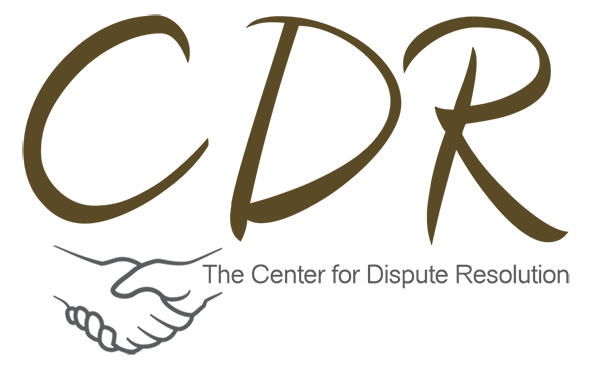So what’s the deal with mediation?
Mediation has been around for thousands of years. In fact, many earlier societies frequently used various forms of mediation to settle disagreements and conflicts between their members. Besides resolving the dispute, mediation was a way for these earlier societies to rebuild the relationship between the parties in order for harmony and peace to be restored. Mediation is:
grounded in the belief that conflict offers opportunity to build stronger individuals, more satisfying relationships, and better communities. (McCorkle & Reese, 2019)
As society became more complex and diverse, the process of mediation was replaced by litigation and court rulings to address wrongdoings and offenses. The preference of seeking legal action has created a huge backlog within the court system whereby resolving disputes in this manner is anything but quick. In addition, both parties are rarely satisfied with the ruling of the court at the conclusion of their case. This and other factors over the past several years have led to a renewed interest in utilizing mediation to more effectively and efficiently resolve matters.
What is mediation?
Mediation is a form of alternative dispute resolution that utilizes a third, neutral party, called a mediator, to assist disputing parties in working through their differences. Unlike traditional court cases where judges make decisions for both parties, mediation empowers people by allowing them to make their own informed choices. By this, individuals are more likely to abide by the agreement of the mediation since they have a voice in shaping the outcome – unlike court orders where one or both parties tend to ignore certain conditions set by the judge.
Mediation is a voluntary process, meaning that all parties involved in the dispute are not mandated to complete the mediation process. Even in instances were individuals have been court ordered to attend mediation, this mandate is often satisfied at the moment both parties show up for the first mediation appointment (can vary by state).
What should you expect during the mediation session?
During the mediation, both parties will be allowed to discuss the cause(s) of their disagreement in an orderly and professional manner. The mediator will use active listening and re-framing of statements to ensure his or her understanding of the nature of the conflict. Through this, the mediator will help all parties involved move beyond the actual sources of conflict and enter into discussions on how to resolve these issues as the relationship between the parties are re-defined in order to move forward.
What is the ultimate goal of mediation?
The goal of mediation is to assist all parties in reaching a suitable resolution to their disagreements or items of conflict. Once the parties reach an agreement, it is memorialized, or put into writing, and signed by all involved parties with each person receiving their own copy of the paperwork. This agreement serves as a document that will guide all parties going forward to not only resolve the current disagreement(s) but to also reduce the likelihood of them having any future disputes.
What should you expect from a mediator?
Although many attorneys also do mediation work as part of their practice, mediators can come from extremely diverse professional backgrounds. In fact, it is not uncommon to see mediators who have experience as counselors, police officers, teachers, and human resource professionals, to name a few. The diverse professional background of these such individuals give each a unique perspective from which they approach their work as mediators.
All individuals seeking to become a mediator must go through very specific training as required by their respective state. This training enables the mediator to be registered with their state office of dispute resolution. In addition, to mediate certain specific disputes, such as medical malpractice claims, employer/employee conflict, or divorce cases, the mediator must first complete the necessary training in order to handle these type conflicts. Each state’s office of dispute resolution will list the certifications of each mediator which identifies what type of disputes that individual can mediate.
Besides having the required training and expertise to mediate, all mediators must be neutral throughout the mediation process. All individuals working as mediators are bound by a code of ethics. A central component of this code is that mediators should not take the side of any party involved in the mediation and the mediator should not have any personal interest, or gain, from whatever the parties ultimately agree to at the conclusion of the mediation.
Final Thoughts
Mediation is a tremendous process that empowers people who are in the midst of disagreement. While no one likes being involved in conflict, it is during these times that individuals can be made stronger, relationships can be made more satisfying, and communities can be made better. Unlike other methods of resolving disputes, mediation helps this happen.
✅ Resolve disputes effortlessly. ✅ Build stronger relationships. ✅ Subscribe FREE now!
Don't miss out! Join us today. 🚀


Comments are closed